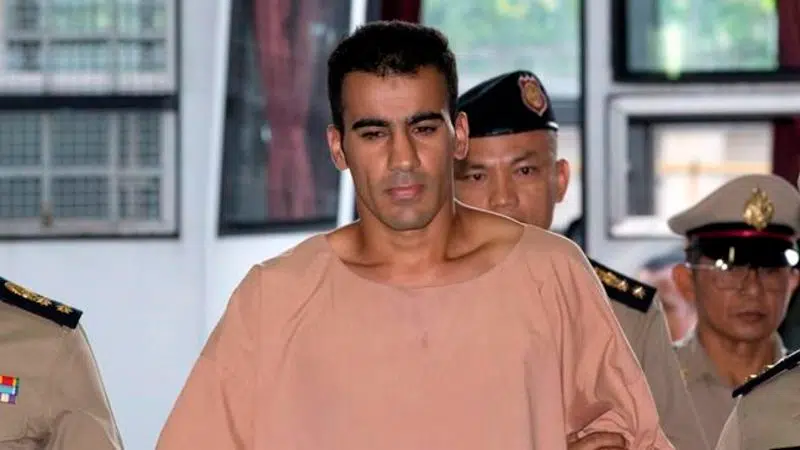
Soccer player refuses voluntary extradition to Bahrain
BANGKOK — A soccer player who has refugee status in Australia told a Thai court Monday that he refuses to be voluntarily extradited to Bahrain, which has asked for his return to serve a prison sentence for a crime he denies committing.
Hakeem al-Araibi’s rejection of extradition means a trial will be held to determine whether Thai authorities will send him to Bahrain, where he fears he is at risk of torture, or release him so he can return to Australia.
“Please speak to Thailand, don’t send me to Bahrain. Bahrain won’t defend me,” a chained al-Araibi yelled to reporters outside court as he was escorted by prison guards into Monday’s hearing.


